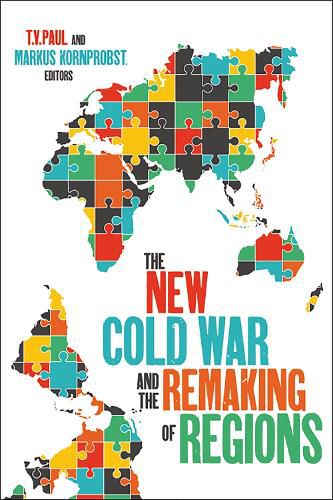Readings Newsletter
Become a Readings Member to make your shopping experience even easier.
Sign in or sign up for free!
You’re not far away from qualifying for FREE standard shipping within Australia
You’ve qualified for FREE standard shipping within Australia
The cart is loading…






A compelling examination of how secondary states are preserving their strategic autonomy and are resisting spheres of influence
Russia's invasion of Ukraine and the deteriorating United States-China relationship signify the onset of the New Cold War. Unlike the original Cold War, this competition is multipolar and "multiplex," with secondary powers, small states, and even nonstate actors pragmatically selecting which of their interests intersect with those of the great powers.
The New Cold War and the Remaking of Regions contends that multiplexity and multipolarity have important repercussions for the world's regional orders. Contributors to the book address the New Cold War and regional ordering processes from realist, liberal, and constructivist perspectives. They demonstrate how variable regional dynamics will lead either to peaceful change or conflict.
This volume is part of a new wave of scholarship that expands the focus of international relations beyond great powers and recognizes the increasing agency that other states have gained in the twenty-first-century world order.
$9.00 standard shipping within Australia
FREE standard shipping within Australia for orders over $100.00
Express & International shipping calculated at checkout
A compelling examination of how secondary states are preserving their strategic autonomy and are resisting spheres of influence
Russia's invasion of Ukraine and the deteriorating United States-China relationship signify the onset of the New Cold War. Unlike the original Cold War, this competition is multipolar and "multiplex," with secondary powers, small states, and even nonstate actors pragmatically selecting which of their interests intersect with those of the great powers.
The New Cold War and the Remaking of Regions contends that multiplexity and multipolarity have important repercussions for the world's regional orders. Contributors to the book address the New Cold War and regional ordering processes from realist, liberal, and constructivist perspectives. They demonstrate how variable regional dynamics will lead either to peaceful change or conflict.
This volume is part of a new wave of scholarship that expands the focus of international relations beyond great powers and recognizes the increasing agency that other states have gained in the twenty-first-century world order.